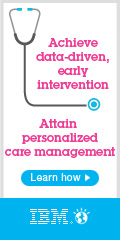
| Archives/Subscribe | Advertise | cmsa.org | cmsa.org | cmsatoday.org | August 2012 |
The Rise of Text Messaging in Case Management
Since 2008, the Case Management Society of America (CMSA), the American Board of Quality Assurance and Utilization Review Physicians, Inc. (ABQAURP), and TCS Healthcare Technologies have been co-sponsors of a bi-annual survey looking at how health information technology trends are impacting case management. A big part of each of the three surveys has been examining how communication channels are changing between case managers and their patients. The 2012 results will be analyzed over the next several months, but preliminary results reinforce several trends from past years in terms of the greater reliance on technology and emerging communication platforms to optimize the clinical and financial goals of case management. One emerging trend that is blatantly obvious is the increase in the use of text messaging within case management programs. For example, the reported use of text messaging with clients has doubled from the 2010 survey and is predicted to double again by 2014:
These statistics come as no surprise when you consider that Short Messaging Service (SMS), more commonly referred to as text messaging, allows for the exchange of short messages and is used by over 4 billion people across the world. According to a report published by the International Telecommunication Union (ITU), "The total number of SMS sent globally tripled between 2007 and 2010, from an estimated 1.8 trillion to a staggering 6.1 trillion. In other words, close to 200,000 text messages are sent every second." Protecting patients’ privacy and security is of paramount importance in the health care field. Due to the fact that the use of text messaging to communicate with patients is a relatively new medium, there are still some gray areas as to what is in compliance with the Health Insurance Portability and Accountability Act (HIPAA) and what is not. Adam Greene, former Senior Health Information Technology and Privacy Specialist and the U.S. Department of Health and Human Services (HHS), published an article addressing the use of SMS in the health care and suggests that, "HHS recognizes that there is still a great deal of ambiguity with respect to the privacy and security issues surrounding text messaging and the application of laws such as the Health Insurance Portability and Accountability Act of 1996 (HIPAA) Privacy and Security Rules." Green goes onto say that, "For health care providers and those involved in mobile health technology, these recommendations mean that they need not completely foreclose the idea of using text messages to assist patients, and HHS supports novel technological initiatives to improve health, but organizations need to tread carefully until HHS conducts research into and publishes guidance on the privacy and security issues." Irrespective of Mr. Greene’s conservative approach, and perhaps justifiable concerns, for using text messaging as a communication link to help manage care, text messaging-based programs are flourishing throughout the private and public sectors addressing a variety of health and mental issues with positive results. A case that exemplifies the benefits of using SMS to communicate with patients occurred in the Wounded Warrior program that utilizes the LifeWire® Corp. text messaging system to allow care managers to reach out to war veterans and follow up on their mental health. The Congressional Committee on Veterans Affairs received a testimonial stating, "Last weekend (the service member) used his phone to trigger a response. His response immediately (initiated a) text message to his clinician who was able to the call veteran and de-escalate a serious episode." A life was saved as a result of this text messaging program. While insurance companies, federal and state agencies, and others are using mobile devices and applications to extend their reach to patients, they need to assure that they are secure and provide reasonable efforts to protect patient privacy. While there are various ways HIPAA compliance can be achieved, LifeWire does it by de-identifying the SMS code during transmission, and then re-identifying the patient specific information in its database behind a secure firewall. Looking toward the future, we can expect an increase in text messaging companies and more clearly defined regulations from HHS regarding the use of text messages to engage and interact with patients. Change is never easy; however, embracing these advances in health care technology and getting proactively involved in helping to define how they can be used without compromising patient privacy, will enable case managers to improve patient engagement and health outcomes. To contact Pat Stricker: |
|
| The leading membership association providing professional collaboration across the health care continuum. 6301 Ranch Drive | Little Rock, AR 72223 | Phone: (501) 225-2229 | Toll-Free: (800) 216-2672 | Fax:(501) 221-9608 Secure Fax Line for Credit Cards: (501) 421-2135 | Email: cmsa@cmsa.org | Website: www.cmsa.org |
 Pat Stricker, RN, MEd
Pat Stricker, RN, MEd




